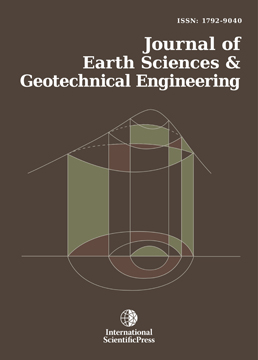Journal of Earth Sciences and Geotechnical Engineering
Rock Mass Characterization and Conceptual Modeling of the Printzsköld Orebody of the Malmberget Mine, Sweden
-
 [ Download ]
[ Download ]
- Times downloaded: 10997
Abstract
The LKAB Malmberget Mine is mined using sublevel caving. This mining method is cost-effective but results in successive caving of the host rock and mining-induced ground deformations. Consequently, re-locations of residential areas have been in progress in Malmberget ever since iron ore extraction on industrial scale commenced about a century ago. This study seeks to increase the understanding of the intrinsic characteristics of the rock mass governing deformation and caving activities. Rock mass characterizations were done in two selected orebodies — Printzsköld and Fabian. Two drill holes were drilled in each orebody from the surface. Geotechnical core logging was performed using the RMR system. Weakness zones were categorized to determine what role they played in the caving process. Point load testing was conducted for a sampling interval of about 5 m and selected uniaxial compressive strength tests were conducted to calibrate the point load index. Tunnel mapping was conducted in the hangingwall of the Printzsköld orebody. The finite element modeling code Phase2 was used for a sensitivity analysis of rock strength parameters and to study factors that may influence initiation of caving of the hangingwall.
